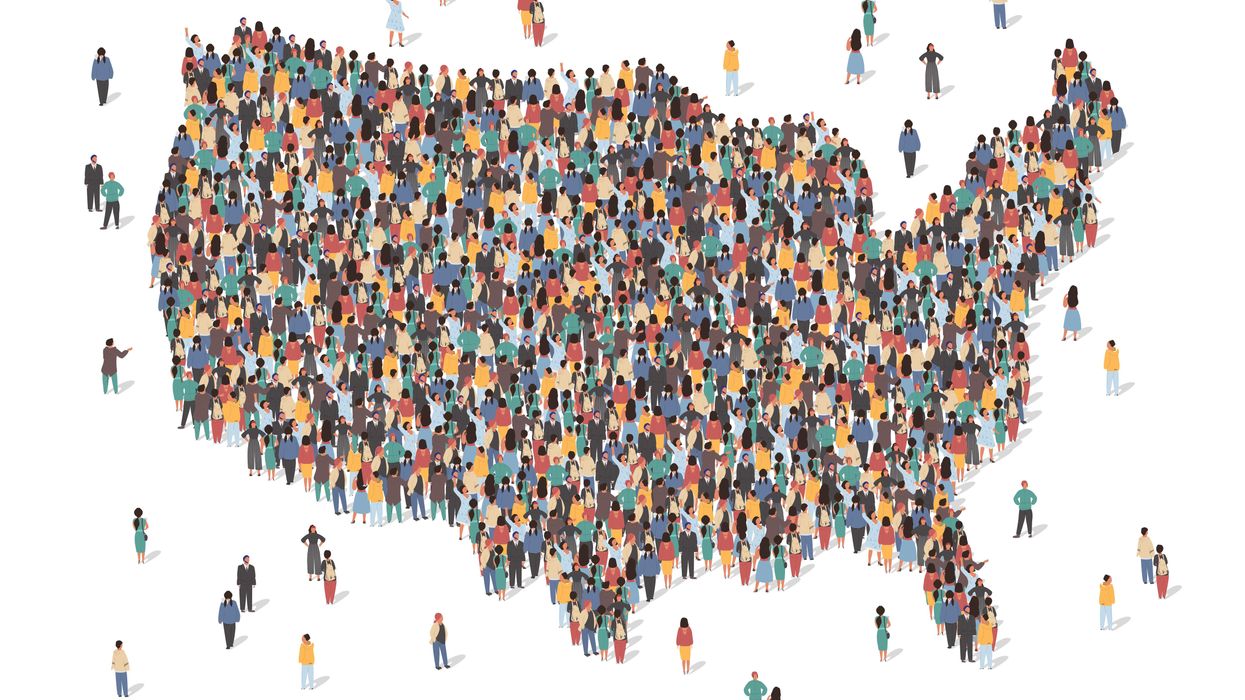"The long sweep of America has been defined by forward motion, a constant widening of our founding creed to embrace all and not just some," Barack Obama observed four years ago in one of the more memorable lines from his farewell presidential address.
That is indeed our great historical tradition. And we have strong reasons to believe it will survive, and maybe our democracy along with it. That's thanks to our steadily diversifying demographics — and despite the currently loud chorus with a much narrower perception of the traditional American way of life.
That view is mainly rooted in a very different time, of course. In the 1950s, about 90 percent of the nation's people were non-Hispanic whites. Now, that figure is closer to 60 percent.
A survey released in February by the American Enterprise Institute, a generally conservative think tank, found more than half of Republicans (56 percent), a third of independents (35 percent) and one in five Democrats (22 percent) agree with the proposition: "The traditional American way of life is disappearing so fast that we may have to use force to save it."
The pollsters apparently did not define what may be alarmingly fading away. But given recent events, especially that attack on the Capitol, for millions of those Republicans it's clearly the time when white was the nation's dominant color.
But many Democrats and independents, it's safe to assume, had something else in mind: a loss of faith in American institutions and decline in community common sense.
The unwillingness of so many to accept the clear-cut, fraud-free outcome of the 2020 presidential election underscores such a loss of confidence in American democracy. In the poll, 66 percent of Republicans said President Biden's victory was illegitimate and 73 percent said his election left them frightened, angered or disappointed.
And the widespread acceptance of conspiracy theories defies common sense: Only three in 10 Republicans outright rejected the QAnon claim that Donald Trump spent his presidency fighting a global sex trafficking ring that included prominent Democrats and Hollywood elites. (A whopping 43 percent said they were uncertain, while 29 percent gave that fantasy some or total credence.)
However the "traditional American way of life" is defined, Black people and other minorities have not largely benefited. The fallout undeniably continues 125 years after the "separate but equal" doctrine sanctioning segregation was set by the Supreme Court. Segregation may now be illegal, but it still endures in practice in many areas of life, creating separate cultures that prevent Americans from knowing or understanding each other.
After George Floyd's death under Derek Chauvin's knee last year, at least one Black demonstrator declared: "We don't want revenge, we just want equality." Considering the egregiously unequal treatment of Black people by white people for so long, this limit to a protester's desire is heartening — and hopefully shared by many other members of minorities who harken to the nation's founding ideals.
But such an aspiration may not be realized, so long as the main interest of many white voters is repelling the "socialist horde" so as to bring back the "great" America of before.
Our nation's changing demographics should mean that, inevitably, those voices of fear and hatred will lose sway to the growing diverse chorus insisting on policies that more effectively promote equal treatment for all.
Countermanding that optimism are those who say the Constitution itself will stand in the way so long as the Senate is preserved in its current form.
Its balance of power has always been tilted to the smaller states, and some political analysts expect things could be dramatically out of whack in two decades: About 70 percent of the people — including most of the nation's Black, Latino and Asian population — will be packed into just 15 of the most urbanized states by 2040, they predict, and so will be allowed to choose only 30 senators. That would mean the disproportionately older, whiter, more rural and more male populations of the rest of the country would have the power to send 70 sympathetic politicians to dominate the Senate.
Another analysis undercuts this concern.
The nine most populous states — in order: California, Texas, Florida, New York, Illinois, Pennsylvania, Ohio, Michigan and Georgia — are now home to 51 percent of us.
That's an almost completely different roster than the states that might be considered the homeland for the base of older, whiter and more rural voters: the 17 that joined last fall's Texas lawsuit, which got rejected out of hand by the Supreme Court, seeking to overturn the election. Except for Texas and two other similarly demographically changing and fast-growing anchors of the Sun Belt, Florida and Arizona, they are almost all in the predominantly white South and Midwest: Alabama, Arkansas, Indiana, Kansas, Louisiana, Mississippi, Missouri, Montana, Nebraska, North Dakota, Oklahoma, South Carolina, South Dakota, Tennessee, Utah and West Virginia.
That collection accounts for 17 percent of the population now. And demographers at the University of Virginia Weldon Cooper Research Group project that share 20 years from now will be almost the same, 16.5 percent.
So they have 32 senators now and still will in two decades, which is a far cry from 70. That number is not close to the majority needed to pass legislation. Nor does it get close to the 41 votes necessary to sustain a filibuster and stop legislation.
Steadily rising numbers of non-white voters almost everywhere else are very likely to disprove those who fear control of Congress will belong indefinitely to the older, male-dominant and white-centric right. If anything, the nation may instead see growing strength on the left as multi-ethnic governance expands.
Demographics are destiny. In the next two decades and beyond, our democracy will be bettered by the other tradition, the one Obama described.




















